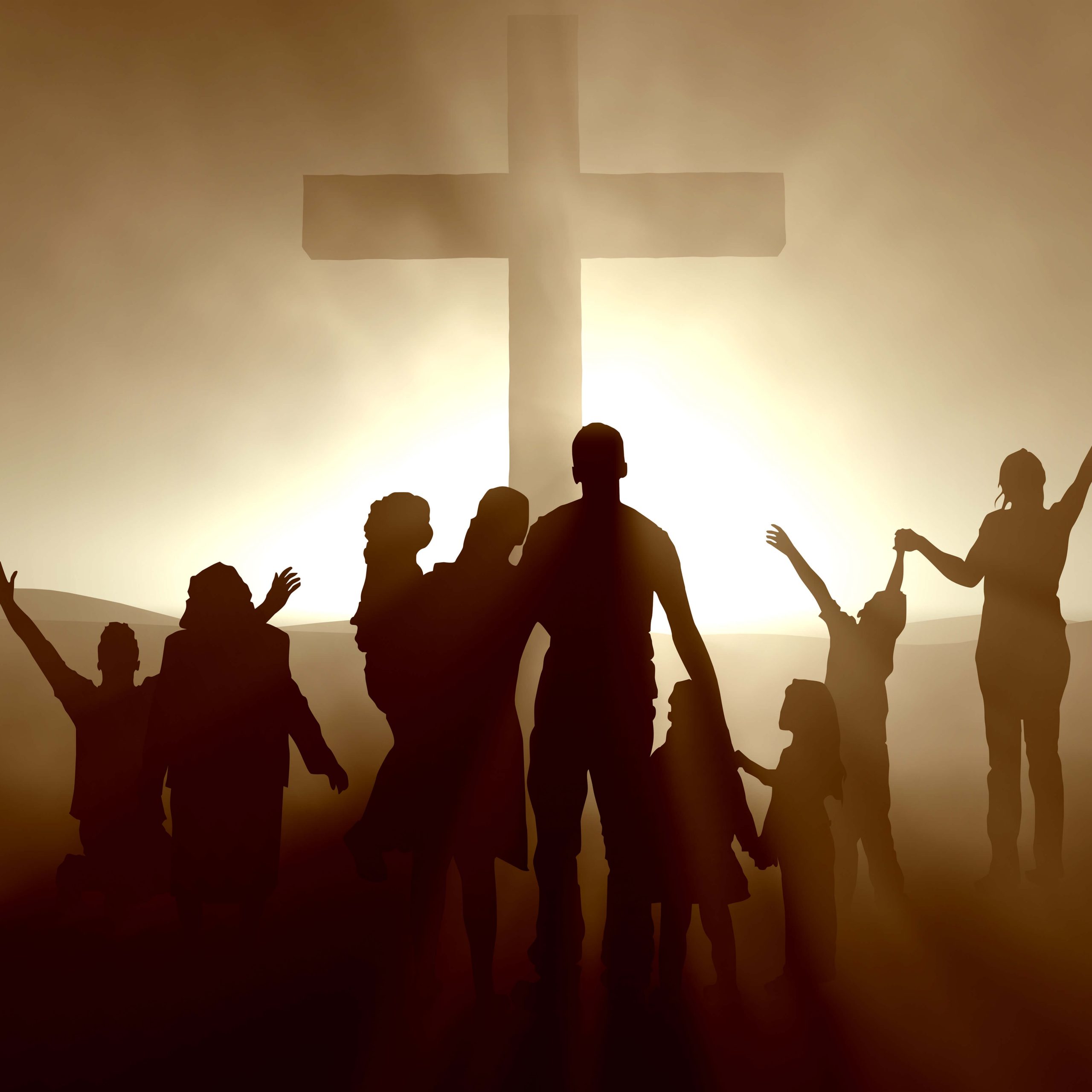
As I write this, we are in the middle of what worshiping Jews call “The Days of Awe,” observed during the first ten days of every Jewish New Year. Observant Jews focus on reading Scripture, dedicate extra time with God, and examine one’s heart and life in light of God’s ways.
Thus each Jewish new year is a time of renewal, taking stock, making things right with God and others. Such deliberate focus on God and His Word inevitably bring us face-to-face with questions like:
Am I walking rightly with the Lord? With other people?
Are there any sins I need to confess? Do I have any broken relationships which need to be mended?
God wisely appointed a time to take stock of our relationships.
I love it that God made a special season for this. Apart from this, man could blithely keep going through life, enduring and even avoiding sticky matters of the heart. God decreed that a new year called for a renewed heart. Secular people making New Year’s Resolutions are acknowledging man’s need to examine and adjust his life periodically.
Christians often miss the profound purposes of God’s OT feast seasons.
Christians celebrate Easter and Christmas to honor the birth of Christ, his sacrificial death and resurrection. While I love the remembrance and worship connected with these, I also value God’s special Old Testament worship seasons. The Spirit awakened me to a beauty and purpose in God’s appointed seasons that should outlive that era.
The Feasts of the Lord are built around one theme: teaching man how to approach, honor, build and renew relationship with God. God describes these appointed feasts in Leviticus Chapter 23. They illustrate a right pattern of life towards and with God, scheduled times to turn one’s attention fully on the Lord, celebrating and renewing relationship with him. Annually observing God’s seasons provided a natural calendar to educate young ones about the nature of God, our place in his family and a right response to Him.
Though Jewish rabbis added many traditions to these celebrations down through the ages, Christians do well to remember that God himself set up this calendar of celebration, remembrance and renewal. Furthermore, God believed observance of them was appropriate “as a lasting ordinance.”
These appointed seasons are not just about being Jewish.
They are about being God’s people, and we are those people.
We are not required to keep specific Jewish rituals, but we are called to honor God’s purposes revealed through them.
The Days of Awe began on New Year’s Day (on God’s special calendar) with the blowing of trumpets. This was God’s wake-up call to his people. No iPhones or alarm clocks in those days! The trumpets signaled it was time to turn and return their attention to him.
The Days of Awe culminated ten days later with the Day of Atonement — Yom Kippur. Worshiping (observant) Jews honor this as a holy day of fasting, repentance, seeking and receiving forgiveness, and reconciliation. No work was allowed on this holiest of days. It was entirely set aside for God and his purposes of examining one’s heart and life.
On the Day of Atonement the high priest entered the Holy of Holies with the blood of a perfect, spotless lamb, and poured it on God’s mercy seat for the sin of God’s people.
I use the singular word “sin,” and not “sins,” because this atonement was required for the original, singular sin which Adam and Eve committed in the Garden. They broke faith with God in their original relational covenant in Eden. This triggered the pre-announced curse of death to come upon Adam and Eve and their blood line. Their sin stained the entire race of men. Its curse could only be removed by one of Adam’s line who was pure and sinless before God.
There would be no such man, but God had a plan
Knowing this, God in his mercy allowed the annual sacrifice of a perfect lamb, its blood poured upon the mercy seat in the Tabernacle, to temporarily atone for this sin.
Then one day — according to the pre-creation plan and covenant among the Trinity in heaven, Jesus left his place at the Father’s side. The Holy Spirit implanted the seed of God in the womb of a young Jewish woman named Mary, and nine months later, Jesus was born into the human race — both a Son of God and a Son of Man.
At the age of Jewish male maturity, in his thirties, Jesus became a teaching rabbi. He taught about his Father God in ways that confounded the religious leaders and comforted the common people. When Jesus declared himself to be God’s Son, he so enraged the religious leaders that they begged the Roman government to crucify him.
The followers of Jesus begged him to use his miracle powers to escape the Roman officials, but Jesus refused. Instead, he willingly offered himself for sacrifice as the spotless Lamb of God. He was brutally beaten and crucified, and buried in a sealed tomb. Three days later, the Bible says Jesus rose from the dead, and appeared to his followers for a season before returning to his seat in heaven by his Father’s side.
God’s plan included redeeming those who died before Jesus came.
It also says that during the three days his body lay in the tomb, Jesus descended into purgatory and preached the good news to those being held there — including men like Abraham and Noah, who, in spite of their righteous life, lived under the curse of the original broken covenant. During that time Jesus also carried his blood to the Tabernacle in heaven, where he poured that pure and sinless blood on the altar, and thereby cleansing it.
By His mysterious birth into the race of men, his sinless life lived among them, and the pure blood he poured out on the altar as proof of his death, Jesus fulfilled all the requirements of God’s holy law and achieved atonement for mankind forever. No sacrifices and ceremonies remained for man to draw close to God; instead, God sent the Holy Spirit to live within those who accepted the death of Jesus in their place, and by the power of that same Spirit, are restored to fellowship with God.
So what remains for Christians to drawn from the special seasons first prescribed for the Jews?
More than ever, we need to live in awe of God.
The Hebrew scribes and scholars unwittingly labeled, by this nickname, the greatest awe of all: that a God so all-powerful, deserving of being approached only in holy fear, laid down His own life to bring mankind near — to bring us into the family of the Trinity.
The greatest act of love ever seen by man illuminates God’s Old Testament laws for what they are: the rules of love and faithfulness. The outpouring of God’s heart of righteous relationship. The recognition that God’s human creation cannot, apart from God’s help, live like true sons and daughters of God. The commitment of God to keep his people close until He could live right with them and provide that help.
As God’s redeemed and born-again children, we have a never-ending need to turn and return to God in our hearts; to revisit and renew our vows of love and faithfulness. We will never outgrow the need to examine ourselves, making things right with God and man in deliberate ways. Otherwise, we risk leaving these most crucial matters subject to the whims of life and occupation and pre-occupations.
Living in awe of God isn’t about keeping a holy distance
True awe of God is expressed by treasuring His Presence, keeping His ways, and showing up for accountability in all your relationships. All that one might discover through reflection and seeking God during the Days of Awe needs resolution. As Apostle Paul said,
Give to everyone what you owe them: If you owe taxes, pay taxes; if revenue, then revenue; if respect, then respect; if honor, then honor. Let no debt remain outstanding, except the continuing debt to love one another, for whoever loves others has fulfilled the law. The commandments, “You shall not commit adultery,” “You shall not murder,” “You shall not steal,” “You shall not covet,” and whatever other command there may be, are summed up in this one command: “Love your neighbor as yourself.” Love does no harm to a neighbor. Therefore love is the fulfillment of the law.
Romans 13:7-10
God’s end goal in giving his people a deadline (the Day of Atonement) isn’t forcing them into a corner about their sin. The goal of this adoring Father is training his children to deal with everything with that robs them of their created glory and beauty, that steals life and joy, so they can get on with the celebration of their union with Him and others.
How do I know? It’s revealed in how the Days of Awe come to their conclusion. Five days after the Day of Atonement, a huge celebration begins….God’s prescribed Feast of Tabernacles. A joyous time of enjoying God, family and life’s blessings, celebrated for a full seven days.
God knows how to start a year off right. As his people, it is wise to pay attention; as his children, it is good to honor our Father’s heart for his appointed season.
Details
Related Posts
A Big Love
Hubby Ron and I cried a lot the last few days. I’m sad to the …
Related Posts:
Taking Care Of Business
Covenant relationship looks like this: if I give of myself to take care of my …








Leave A Comment